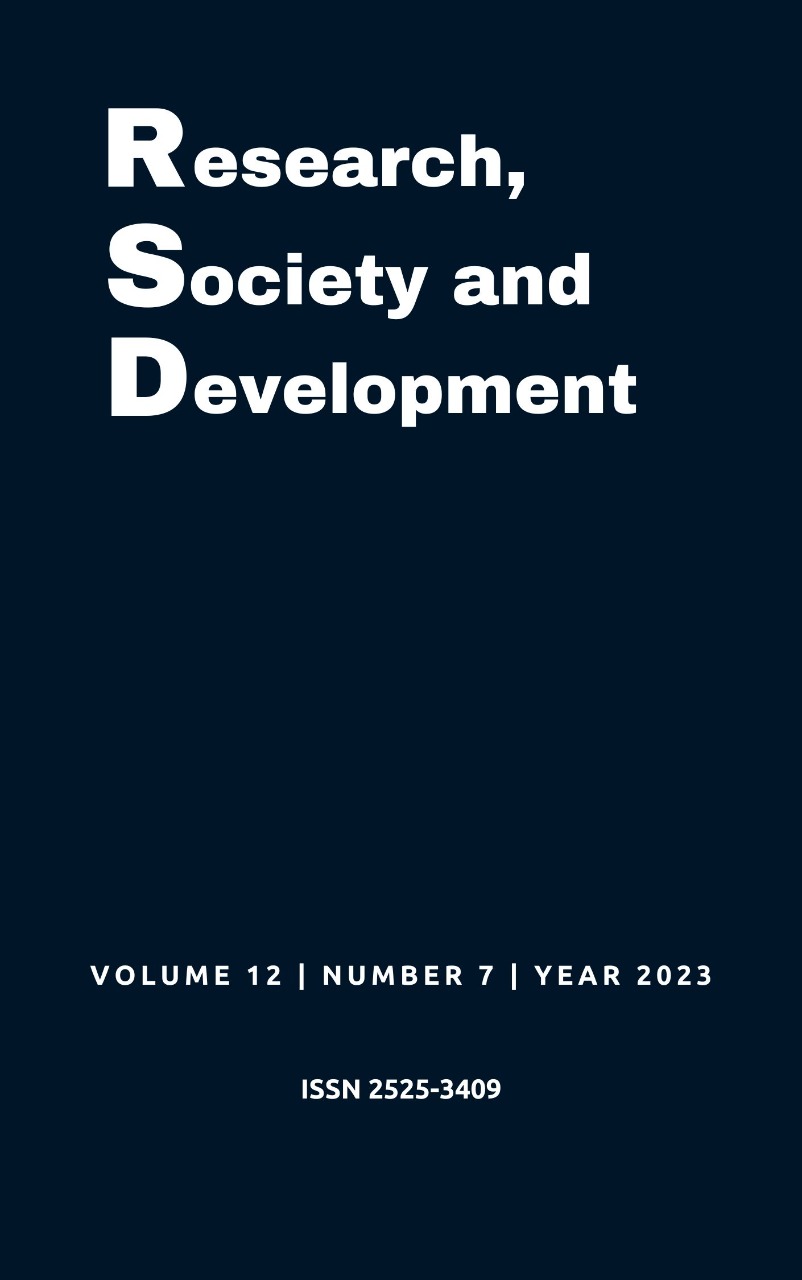The commodity form: understanding the commodification of education
DOI:
https://doi.org/10.33448/rsd-v12i7.42435Keywords:
Commodity, Value, Work, Economics teaching, Education.Abstract
In the objective conditions of mercantile-capitalist society, the commodity form or interchangeability, becomes the social form of the social relations of production. In this sociability, “wealth [...] appears as an immense collection of goods”. In these circumstances, the central question of this research project is how the education complex, in the objective conditions of mercantile-capitalist society, assumes the form of merchandise. To deal with this issue, we chose as a general objective to explain, from the perspective of Marxian political economy, how the education complex takes the form of a commodity. And as specific objectives, describe the fundamental elements of mercantile-capitalist society: private and isolated producers, concrete and abstract work and the exchange process; demonstrate interchangeability as the social form of the social relations of production in mercantile-capitalist society; make explicit the constitutive elements of merchandise in the education complex: value, use value and exchange value, concrete and abstract work. To carry out our study, we will use the thought of Marx and interpretations. We will use onto-methodological assumptions in the development of bibliographical research from the perspective of historical-dialectical materialism.
References
Almeida, E. R. (2017). O papel da produção social na gênese, no desenvolvimento e no devir do gênero humano. Tese (doutorado) pós graduação em educação, Universidade Federal do Ceará, Fortaleza.
Belluzzo O, L. de M. (1980). Valor e capitalismo: um ensaio sobre a economia política. Brasiliense.
Carcanholo, R. (2011). Capital: essência e aparência. Vol. 1. Expressão Popular.
Carcanholo, R. (1982). Dialética de la mercancia y teoría del valor. Educa.
Ferro, K. & Almeida, E. (2022). O mal-estar da civilização de Sigmound Freud: uma análise ontológica a partir da categoria trabalho. Research, Society and Development, 11 (16). DOI: http://dx.doi.org/10.33448/rsd-v11i16.37985.
Gonçalves, R. M. P., et al. (2019). O sentido ontológico do trabalho e o desenvolvimento das funções psicológicas superiores: considerações preliminares. Educação e Filosofia, 33, 925-957. https://doi.org/10.14393/REVEDFIL.v33n68a2019-46626.
Grespan, J.L. (2012). O negativo do capital: o conceito de crise na crítica de Marx à economia política. Expressão Popular.
Harvey, D. (2013). Para entender o Capital. Boitempo Editorial.
Jappe, A. (2006). As aventuras da mercadoria; para uma nova crítica do valor. Portugal: Antígona.
Koffler, L. (2010). História e dialética. Ed. UFRJ.
Kosik, K. (1995). Dialética do concreto. Paz e Terra.
Lessa S. (2007). Para compreender a ontologia de Lukács. Edufal.
Lukács, G. (2020). A destruição da razão. Instituto Lukács.
Mandel, E. (1980). A formação do pensamento econômico de Karl Marx: de 1843 até a redação de O Capital. Rio de Janeiro: Zahar Editores.
Lukács, G. (2021). Para uma ontologia do ser social. Boitempo.
Lukács, G. (2020) Prolegômenos para uma ontologia do ser social. Boitempo Editorial.
Marx, K. (1987). A Miséria da Filosofia. Lisboa, Portugal: Editora Estampa.
Marx, K (1979). Crítica da Filosofia do Direito de Hegel - Introdução. In: Revista Temas de Ciências Humanas. Vol. II. Grijalbo.
Marx, K. (2011). Grundrisse. Boitempo Editorial.
Marx, K. (2004). Manuscritos econômico-filosóficos. Boitempo Editorial.
Marx, K. (2011) O capital. Boitempo Editorial.
Marx, K. & Engels, F. (2021). A ideologia alemã. Boitempo Editorial.
Marx, K & Engels, F. (2007). Manifesto do partido comunista. Boitempo.
Matana, C. & Iesen, S. A. L. (2021). Fundamentos psicanalíticos na construção da subjetividade na Psicose. Research, Society and Development, 10 (10). https://doi.org/10.33448/rsd-v10i10.18738.
Mendes Segundo, M. das D. & Rabelo, J. (2004). Marx e o fetichismo da mercadoria: notas a respeito do primeiro capítulo do livro I d´O Capital. In: Jimenez, S. & Rabelo, J. (Orgs). Trabalho, educação e luta de classes: a pesquisa em defesa da história. Brasil Tropical.
Mészaros, I. (2006). A teoria da alienação em Marx. Boitempo Editorial.
Mészaros, I. (2004). O poder da Ideologia. São Paulo: Boitempo Editorial.
Mészaros, I. (2005). A educação para além do capital. Boitempo.
Mészaros, I. (2009). A crise estrutural do capital. Boitempo.
Mészaros, I. (2007). O desafio e o fardo do tempo histórico. Boitempo.
Mészaros, I. (2011). Para além do capital. Boitempo.
Mészaros, I. (2021). O século XXI: socialismo ou barbárie? Boitempo Editorial.
Mészaros, I. (2006). A teoria da alienação em Marx. Boitempo.
Mészaros, I. (2008). Filosofia, ideologia e ciência social. Boitempo.
Paulo Netto, J. (2011). Introdução ao estudo do método de Marx. Ed. Expressão Popular.
Rosdolsky, R. (2001). Gênese e estrutura do capital de Karl Marx. Contraponto.
Rossi, R. (2020). Espaço, Totalidade e Método. Sociedade & Natureza, 32, 578-585. https://doi.org/10.14393/SN-v32-2020-48456.
Rubin, I. (1980). A teoria do valor em Marx. Brasiliense.
Rumiantsev, A. (1980). Economia Política: capitalismo. Traducción al espanõl. Editora Progresso.
Tonet, I. (2016). Método Científico: uma abordagem ontológica. Ed. Coletivo Veredas.
Tonet, I (2007). Educação contra o capital. Edufal.
Tonet, I. (2005). Educação, Cidadania e Emancipação Humana. Unijuí.
Downloads
Published
Issue
Section
License
Copyright (c) 2023 Karla Érika Ferreira Ferro; Emanoel Rodrigues Almeida

This work is licensed under a Creative Commons Attribution 4.0 International License.
Authors who publish with this journal agree to the following terms:
1) Authors retain copyright and grant the journal right of first publication with the work simultaneously licensed under a Creative Commons Attribution License that allows others to share the work with an acknowledgement of the work's authorship and initial publication in this journal.
2) Authors are able to enter into separate, additional contractual arrangements for the non-exclusive distribution of the journal's published version of the work (e.g., post it to an institutional repository or publish it in a book), with an acknowledgement of its initial publication in this journal.
3) Authors are permitted and encouraged to post their work online (e.g., in institutional repositories or on their website) prior to and during the submission process, as it can lead to productive exchanges, as well as earlier and greater citation of published work.


